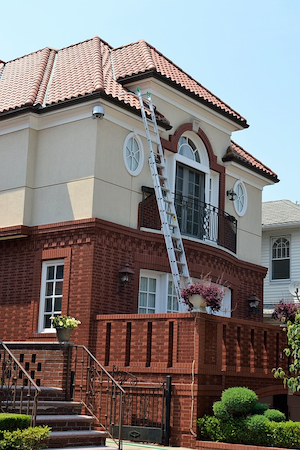Typically, having an offer on your dream house accepted would call for an immediate celebration, but there are certain things that you might not have noticed. For instance, some of the floorboards are loose, the bed has a few springs jutting out and some of the sinks around the house are leaking.
Whether you’re selling the house or buying it, proper home inspection needs to be done in order to boost the house’s value or avoid costly home improvement repairs.
So, when you’re hiring a home inspector or inspecting the house on your own to avoid doing business with possible shady individuals, here are the things to look for in a home inspection:

Exterior
- Walls and siding: does the siding need repenting or replacement? Are the gutters and downspouts in proper condition? Do you see any cracks on the exterior walls?
- Lawn area: see if there are any standing pools or soggy patches of water. Check the drainage system and how it looks like.
- Carports and garages: check if the concrete slab, ceilings, and vents are intact. Inspect if the garage has an unbroken, continuous firewall that separates it from the rest of your house.
- Porches and decks: make sure the railings are intact. The deck flooring needs to be structurally sound. And see if any part of the wood needs for painting or resealing.
Interior
- Stairways: inspect the railings to see if they’re intact. Check if the steps have any discernible noises to them when you step on them.
- Drywall and floors: make sure the floors and the base of the interior walls are intact. Also, check if there are any vertical or horizontal cracks on Floors or on the walls and if there are any signs of leakage.
- Windows: See if the windows have been sealed properly and that the frames are in good condition.
- Cabinets: Cabinets should be in proper condition, including the material, fixtures, and hinges. Have a closer look to see if any of those things need to be cleaned, replaced or refinished partially or completely.
- Vents: Make sure that your vents are working properly and by that, we mean that they are able to move air outside of your property.
Basements And Crawlspaces
You should pay attention to those corners and tight spaces because chances are that mildew stains may be growing and pungent odors may be emanating from those regions.
This may also be a sign of black mold, which could really ruin your acceptable offer if potential buyers and home inspectors take notice of this.
Even if the mold growing within your property isn’t dangerous, it is advisable to treat it immediately.
Alert!: be warned that if the home inspector finds any sign of mold growth, the buyer could demand professional mold remediation which could end up costing you thousands of dollars.
If there is any odor of mildew, it means that the basement is likely too moist. Home inspectors and buyers will closely observe floors and walls for any signs of dampness and mildew patches.
If there is an excess level of moisture leaking out, it could cause weakening of the structure that may end up bringing certain parts of the house down. To reduce moisture levels in your property, you need to use plastic to cover up any exposed earth in crawl spaces and basements.
To get some ideas on how you can make your residential property look attractive, head on over to Paradise Departments.
HVAC System
When buying a house, one of the things about what to look for in a home inspection is the HVAC system.
A home inspector will confirm that the system is functional during the time of their inspection, but won’t make any guarantees that it will continue functioning once it’s been bought.
The best that home inspectors can do is to inform you how long the home air conditioning condenser is going to last which is when they inspect the serial number of the unit.
Roof and Chimneys
Some of the other things to look for in a home inspection are shinglers or roof coverings that have withered away. If there are elements of moisture and rot underneath the shingles, then buyers may ask for repairs. Some states have their own roof inspection.
Be sure that the base of a chimney is watertight and that the bricks and mortar are in excellent condition. Also, make sure that the fireplace is working optimally as well.
Electrical Systems
There are certain systems that need to be inspected, such as the knob and tube wiring. This electrical system is typically ungrounded, which increases the risk of electrical shocks.
Another thing to be wary of is a Federal Pacific electric panel. If any of the circuit breakers for these systems get tripped, it could lead to fires and overheating.
Plumbing
Home inspectors know how to inspect a house, especially when it comes to checking water pressure by turning on several faucets, running a house’s dishwater, as well as flushing toilets all at once. Home inspectors also check the state of the septic system.
Addressing a house has plumbing problems is essential as it could result in water damage which could devalue a house’s selling capabilities.